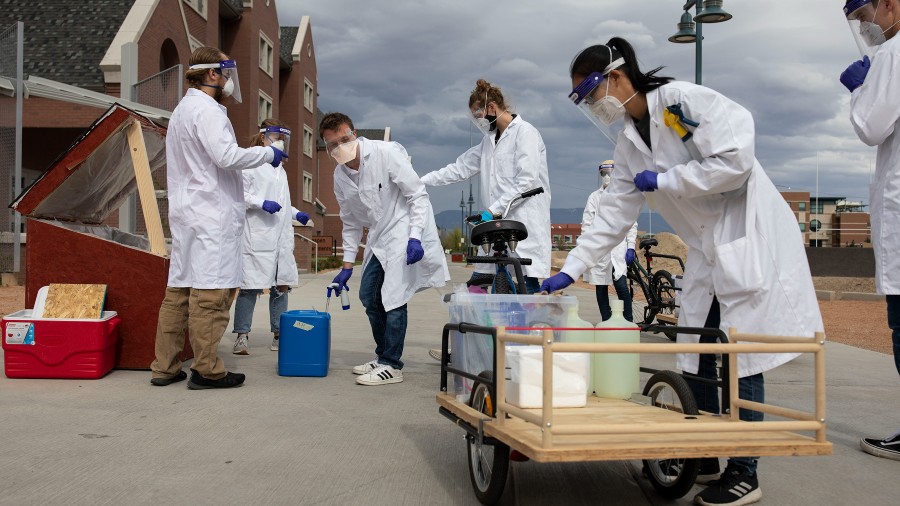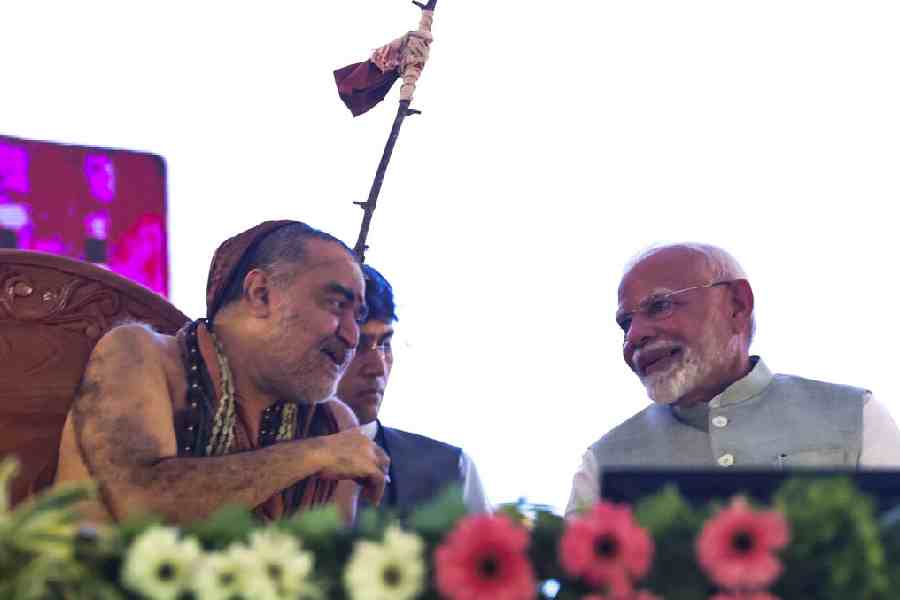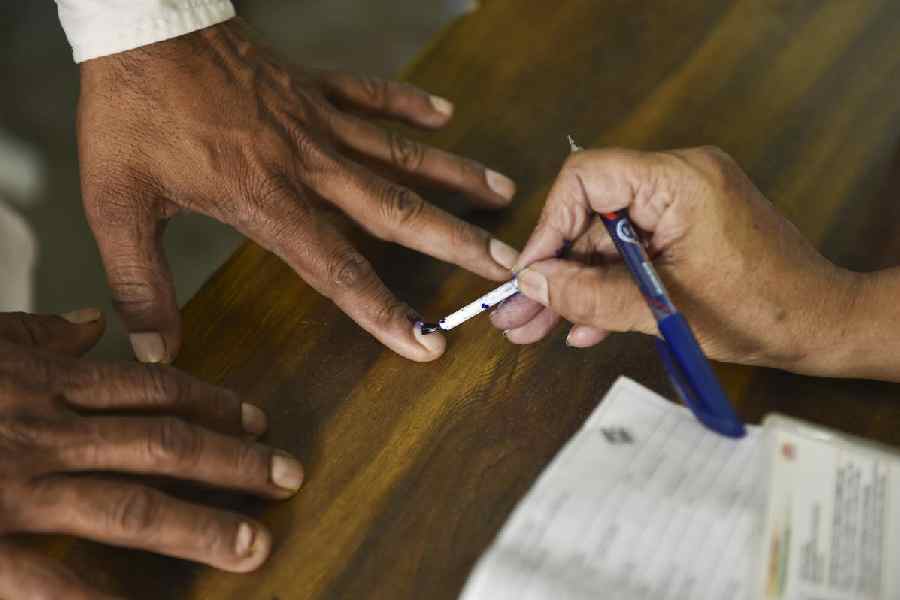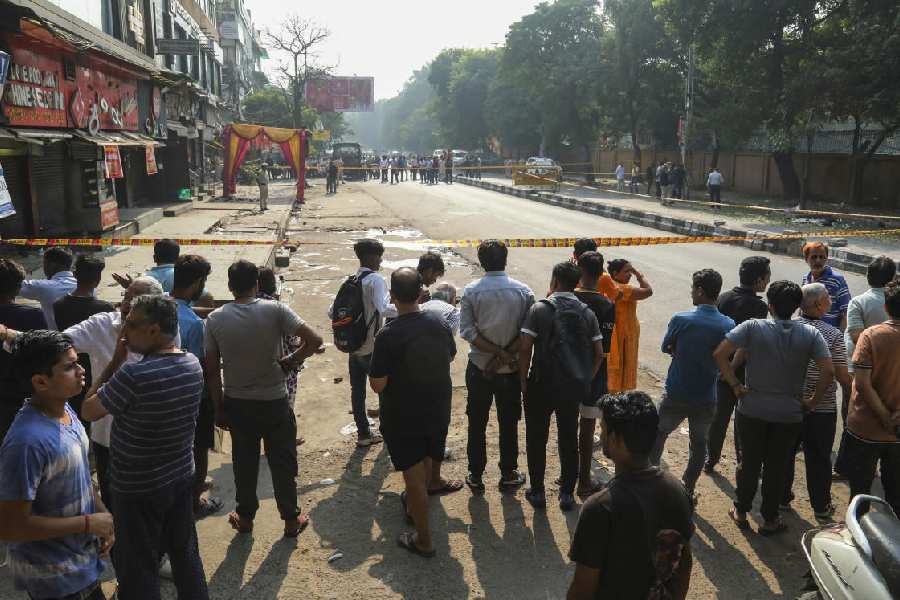One weekend last August, Shynell Moore woke up with a headache and a sore throat. Moore, then just a few weeks into her junior year at Colorado Mesa University (CMU), pulled out her phone and fired up a symptom-tracking app called Scout.
Within seconds of reporting her symptoms, the screen turned red: she might have Covid-19, the app said. She promptly got a call from a school administrator, and before the day was out, she had packed some clothes and her elephant ear fish, Dumbo, and moved into quarantine housing. Her Covid-19 test soon came back positive.
Several days into her quarantine period, Moore took a whiff of Dumbo’s typically malodorous food. “I couldn’t smell it,” she said. “And then I drank some cough syrup, and I couldn’t taste it.” She opened Scout and clicked an option: “Lost taste or smell.”
Each time she reported a symptom, the information was transmitted to Lookout, the university’s digital Covid-19 dashboard. Over the months that followed, Lookout evolved into a sophisticated system for tracking Covid-19 symptoms and cases across campus, recording students’ contacts, mapping case clusters, untangling chains of viral transmission and monitoring the spread of new variants.
“Colorado Mesa has the most sophisticated system in the country to track outbreaks,” said Dr Pardis Sabeti, a geneticist at the Broad Institute of MIT and Harvard who has helped health officials around the world respond to Ebola, Lassa fever and other infectious diseases. “It’s definitely the kind of analytics that people talk about having but nobody actually has access to in this way.”
Lookout is the product of a partnership between CMU — a medium-sized school that sits in the high desert of western Colorado and prides itself on serving disadvantaged students — and the Broad Institute, a cutting-edge genomic research centre in Cambridge, Massachusetts.
Together, they have turned CMU’s campus of 10,000-plus students into a real-world, real-time epidemiological laboratory, experimenting with creative approaches to pandemic management.

Shynell Moore, a junior at CMU, who contracted Covid-19 last fall. Eliza Earle, NYT
In 2016 and 2017, mumps outbreaks blossomed across Massachusetts, hopping from one college campus to another. Sabeti worked closely with state public health researchers, watching them map case clusters by hand and log data in increasingly unwieldy Excel spreadsheets. It was painstaking, time-consuming work, and the insights were “really hard-earned,” she said.
In the years that followed, Sabeti and her postdoctoral fellow Andrés Colubri worked with a local firm, Fathom Information Design, to develop a symptom-tracking and contact-tracing app that could be used in future outbreaks. They imagined a scenario in which a college student could report a fever and then be informed that two students down the hall had recently developed the same symptom. “We called it the Facebook app for outbreaks,” Sabeti said.
They were still developing the app, which became Scout, when Covid-19 hit. “Five-year plans turned into six-month plans,” Sabeti said. Fathom raced to finish the app, while Sabeti looked for a place to pilot it.
She had begun advising colleges across the country on their coronavirus responses, but CMU, based in Grand Junction, Colorado, immediately stood out to her.
Like many schools, CMU had suddenly suspended its in-person classes in mid-March 2020. College students everywhere were facing the same educational disruption. But CMU administrators worried that their students — two-thirds of whom were students of colour, low-income or the first in their families to go to college — might be permanently derailed by a semester, or longer, spent entirely online.
And so the administration made a decision: In the fall, it would bring students back to campus. All of them. “It became really obvious very quickly, this was a moral imperative,” said John Marshall, the school’s vice president. “We had to find a way to get back.” (Marshall was recently named the university’s new president, starting on July 1.)
When students returned in August, Scout became their campus wellness passport. Every day, they used Scout to report whether they had any Covid-19 symptoms or had recently travelled outside the area. If they had no symptoms and no recent travel, the screen turned green. This green screen was their ticket to enter the classroom, the cafeteria and other campus buildings.
The data was fed into Lookout, the dashboard that Fathom had developed to give administrators a holistic view of what was happening on campus: “Across this 10,000-student population, how are we actually doing day to day?” said Fathom’s founder, Ben Fry, who built Scout and Lookout with his colleague Olivia Glennon.
In addition to aggregating symptom data, Lookout also pulls in hourly results from the university’s coronavirus testing site.
Lookout also displays a geographic heat map of cases, a dorm view with room-by-room maps of positive and negative test results, and data from a new wastewater surveillance system, which tracks the coronavirus levels in the sewage flowing from various dorms. (People with Covid-19 shed the virus in their stool.) “As Lookout came together, it took this really complicated web of data and helped us start to both visually see it and to start making sense of it,” Marshall said.
Over the longer term, Sabeti and her colleagues hope to build versions of Scout and Lookout that can be used by schools, companies, local governments and other organisations around the world to respond to outbreaks of infectious disease.
NYTNS










